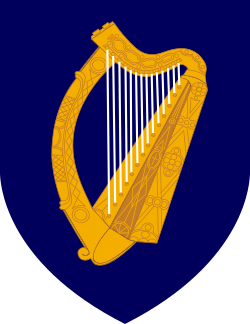Top Qs
Timeline
Chat
Perspective
Irish Sign Language Act 2017
Irish law From Wikipedia, the free encyclopedia
Remove ads
The Irish Sign Language Act 2017 (Act No. 13 of 2017; previously Bill No. 40 of 2017) is an Act of the Oireachtas (Irish parliament) which gives Irish Sign Language official legal status.
Remove ads
Background
Broadly, before the bill was passed there were large swathes of public services that were inaccessible to deaf people.
In 2015, it was noted by Mental Health Reform that unless a user of mental health services books an interpreter in advance, there is no way to communicate this in advance.[1]
In 2017, the Citizens Information Board published a report criticising a lack of interpreters in public organisations as undermining of the self-worth of deaf people and quite possibly clinically dangerous in a medical context due to the possibility of a misunderstanding leading to significant clinical risk.[2]
In 2020, primary education was criticised as extremely exclusionary and inaccessible to deaf children.[3]
The campaign for Irish Sign Language to gain legal recognition took 35 years from the start of the campaign to commencement.[4]
Remove ads
Commencement of the law
The law commenced on 23 December 2020.
Impact
One year after commencement, according to a report by the National Disability Authority into the operation of the law, awareness among public bodies about there was very low.[5] The Irish Government delayed publication by 1 year due to an "ongoing legal issue".[6]
See also
- Sign Language Bill (Northern Ireland)
- British Sign Language Act 2022
- Accessible Canada Act
- New Zealand Sign Language Act 2006
References
Wikiwand - on
Seamless Wikipedia browsing. On steroids.
Remove ads

